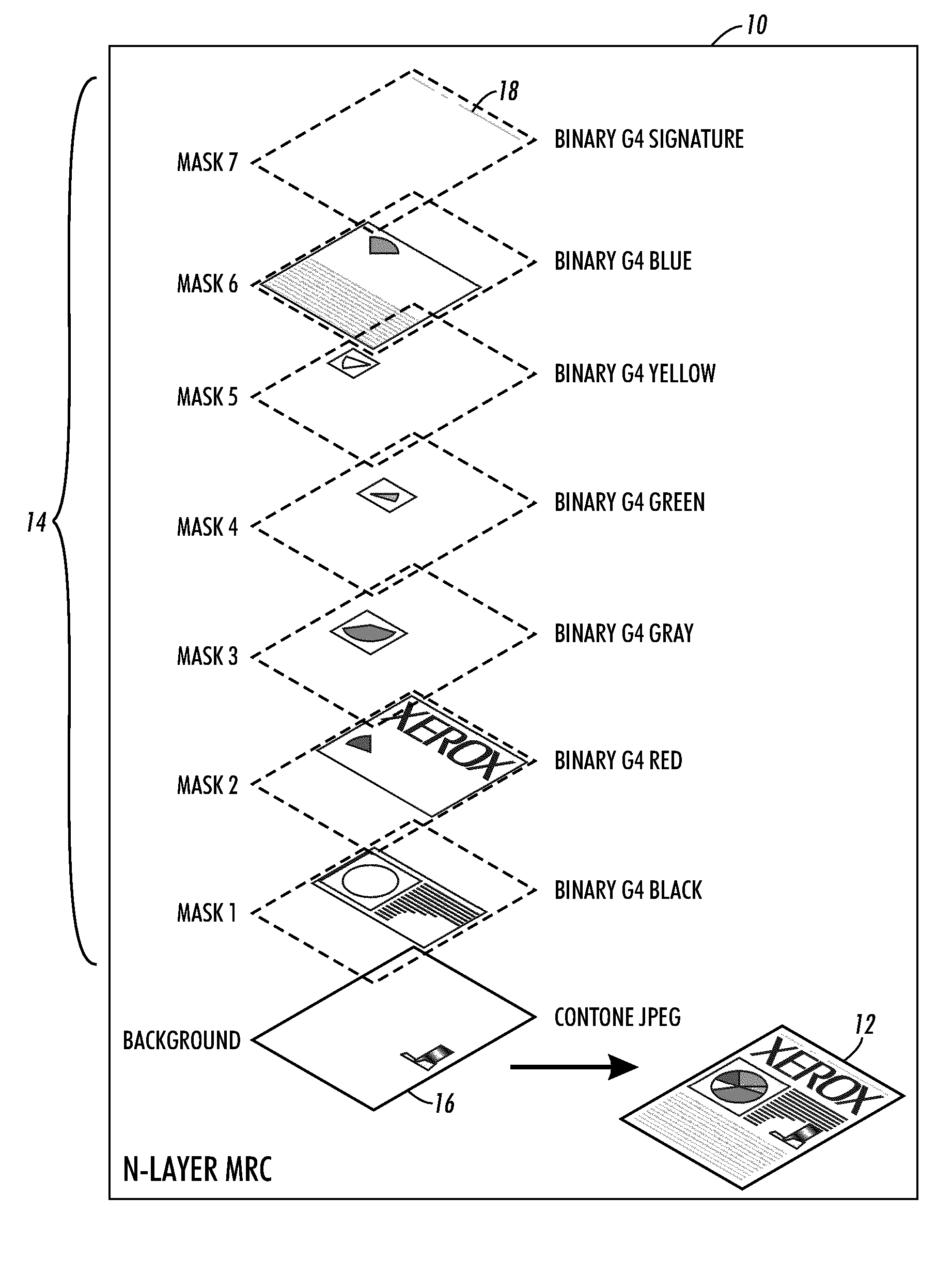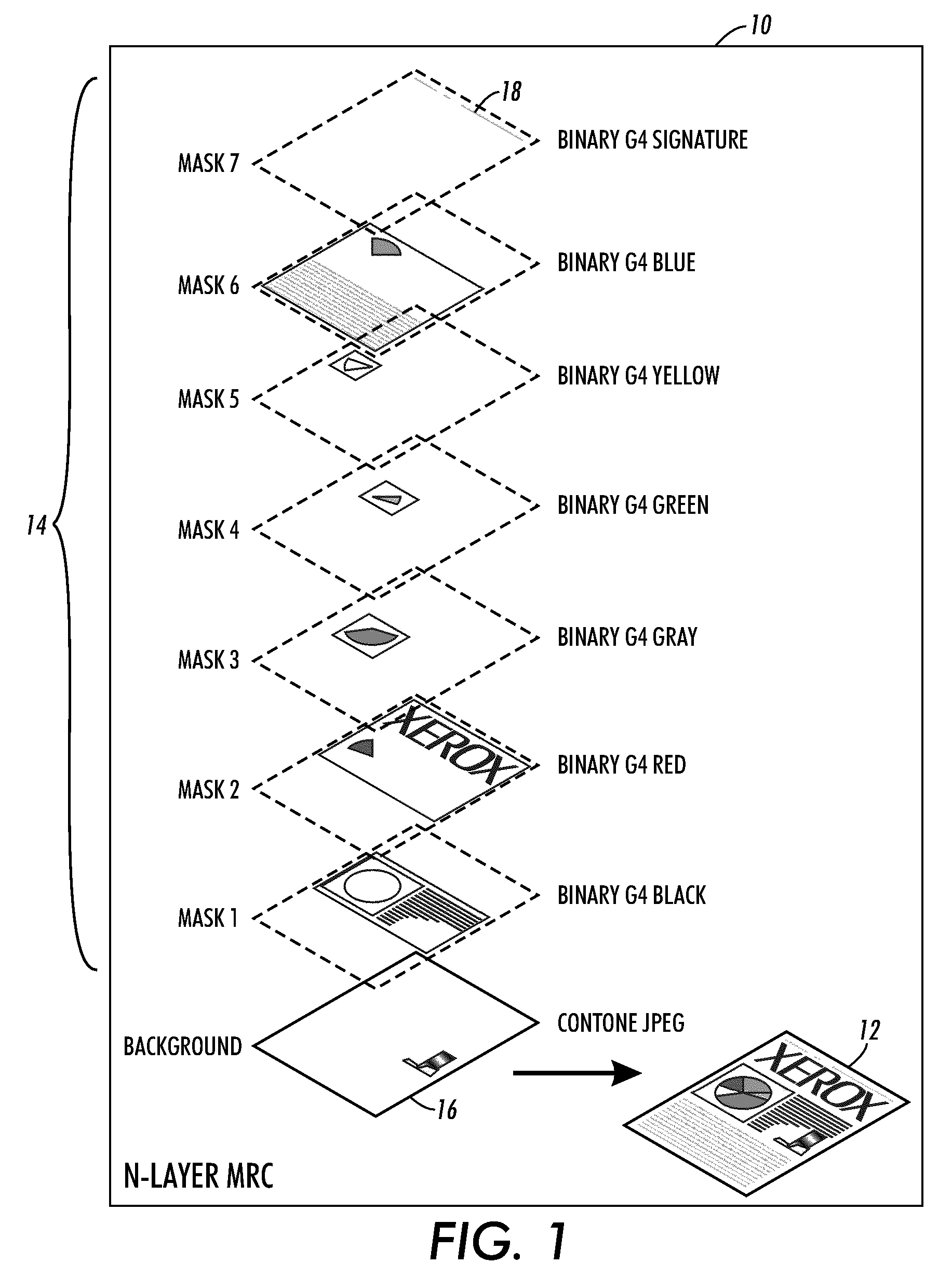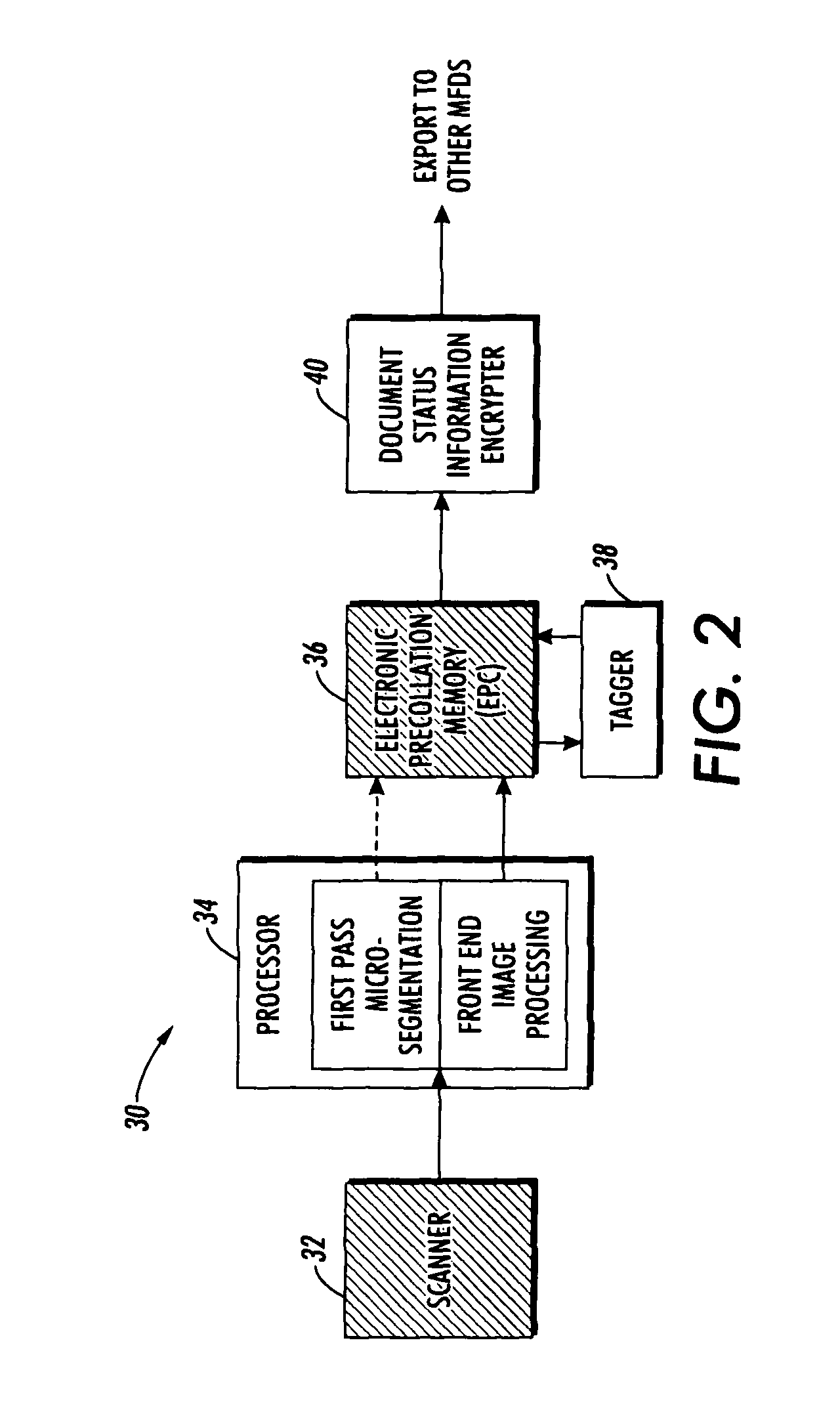Preserving scanner signature using MRC technology
a scanner and signature technology, applied in the field of document scanning, can solve the problems of high cost of implementation in the office image path, limitations of single-pass segmentation traditionally performed, etc., and achieve the effect of facilitating overcoming
- Summary
- Abstract
- Description
- Claims
- Application Information
AI Technical Summary
Benefits of technology
Problems solved by technology
Method used
Image
Examples
Embodiment Construction
[0015]In accordance with various features described herein, systems and methods are described that facilitate preserving scanner and / or document status information in a scanned document using mixed raster content (MRC) technology. Scanner signatures are typically difficult to maintain across file formats. For instance, signatures are lost when the file is converted from its original format. Accordingly, a method of generating a lossless scanner signature both in PDF and XML paper specification (XPS) documents is presented, which embeds an encrypted binary signature or other information as a mask layer within the MRC file format. The signature can be preserved even during file format conversions between PDF and XPS. The signature can be employed to identify a device that scanned the document(s), to preserve scanner identity in the scanned document(s), as a selective encryption field in scanned documents, and the like.
[0016]With reference to FIG. 1, an exploded view 10 of an N-layer M...
PUM
 Login to View More
Login to View More Abstract
Description
Claims
Application Information
 Login to View More
Login to View More - R&D
- Intellectual Property
- Life Sciences
- Materials
- Tech Scout
- Unparalleled Data Quality
- Higher Quality Content
- 60% Fewer Hallucinations
Browse by: Latest US Patents, China's latest patents, Technical Efficacy Thesaurus, Application Domain, Technology Topic, Popular Technical Reports.
© 2025 PatSnap. All rights reserved.Legal|Privacy policy|Modern Slavery Act Transparency Statement|Sitemap|About US| Contact US: help@patsnap.com



